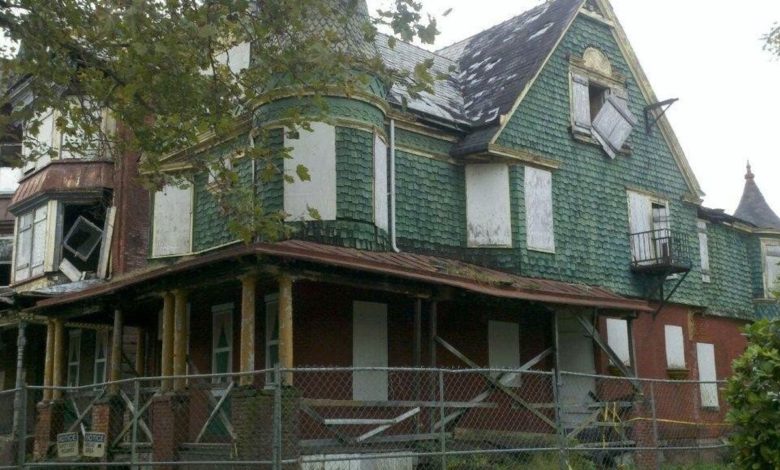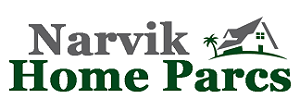Restoring Homes to Their Former Glory: Water Damage Repair in Hunterdon, NJ

Key Takeaways:
- Water damage is a common problem faced by homeowners in Hunterdon, NJ.
- There are three main types of water damage: clean water damage, gray water damage, and black water damage.
- The effects of water damage can be devastating and far-reaching.
- Taking prompt action is crucial to prevent further damage and minimize the overall cost of restoration.
- The restoration process involves evaluating the extent of damage, water extraction and drying, and mold remediation and prevention.
- When choosing professionals for water damage repair, consider their experience, licensing, certifications, and reputation.
- Regular property inspections, maintenance of plumbing systems, and proper drainage and grading can help prevent water damage.
Welcome to our complete guide on water damage repair in Hunterdon, NJ! In this extensive article, we will take an in-depth look at the various aspects related to water damage, its effects, the restoration process, and choosing the right professionals for the job. Additionally, we will provide you with valuable tips to prevent water damage and protect your home. Let’s dive right in!
Understanding Water Damage
Water damage in Hunterdon, NJ, is a common problem faced by homeowners and the surrounding areas. It occurs when unwanted water infiltrates your home, causing damage to the structure, furniture, and personal belongings. Understanding the types of water damage is crucial in order to take appropriate actions for restoration.
Types of Water Damage
There are three main types of water damage: clean water damage, gray water damage, and black water damage. Clean water damage refers to water from sources such as a broken pipe, leaking faucet, or rainwater. Gray water damage is caused by water from sources such as dishwasher or washing machine overflow, and it may contain some contaminants. Black water damage is the most severe type and occurs when water contains sewage, chemicals, or bacteria. This can happen due to a sewage backup or flooding.
The Effects of Water Damage
The effects of water damage can be devastating and far-reaching. Immediate consequences include structural damage, mold growth, and damage to personal possessions. If left untreated, water damage can lead to long-term issues such as weakened structural integrity, electrical problems, and health hazards caused by mold and bacteria. It is essential to address water damage promptly to mitigate these effects.
The Importance of Prompt Action
When it comes to water damage, time is of the essence. Taking prompt action is crucial to prevent further damage and minimize the overall cost of restoration. The longer water sits in your home, the more extensive the damage becomes, increasing the risk of mold growth and structural issues. It is recommended to contact a professional water damage repair company as soon as possible to assess the situation and begin the restoration process.
The Restoration Process
The restoration process for water damage involves several steps to ensure a thorough and effective repair. Let’s take a closer look at each of these steps.
Evaluating the Extent of Damage
The first step in the restoration process is to evaluate the extent of the water damage. Professionals will assess the affected areas, identify the source of the water, and determine the category of water damage. This detailed evaluation helps in developing an appropriate restoration plan tailored to your specific situation.
Water Extraction and Drying Techniques
Once the evaluation is complete, the restoration team will proceed with water extraction and drying techniques. Specialized equipment such as pumps, vacuums, and dehumidifiers will be utilized to remove standing water and moisture from the affected areas. This step is crucial in preventing further damage and mold growth.
Mold Remediation and Prevention
One of the most significant concerns after water damage is the potential growth of mold. Mold can spread rapidly and pose serious health risks. During the restoration process, professionals will conduct mold remediation to remove any existing mold and prevent its future growth. This may involve thorough cleaning, disinfection, and the use of mold inhibitors.
Choosing the Right Professionals
When it comes to water damage repair, choosing the right professionals is essential for a successful outcome. Let’s explore the factors you should consider before making your decision.
Experience and Expertise
When hiring a water damage repair company, it is crucial to consider their experience and expertise in the field. Look for professionals who have been in the industry for a considerable amount of time and have a track record of successful restorations. Experienced professionals will have the necessary knowledge and skills to handle any water damage situation effectively.
Licensing and Certifications
Ensure that the water damage repair company holds the necessary licenses and certifications required by the state of New Jersey. These credentials indicate that the professionals have undergone proper training and adhere to industry standards. Working with licensed and certified technicians will give you peace of mind knowing that you are dealing with qualified individuals.
Client Testimonials and Reviews
Take the time to research the reputation of the water damage repair company by reading client testimonials and reviews. Feedback from previous clients can provide valuable insights into the quality of their service, professionalism, and customer satisfaction. Look for companies with positive reviews and a strong reputation in the community.
Tips for Preventing Water Damage
While water damage repair is crucial, it is equally important to take preventive measures to protect your home from potential water damage. Here are some valuable tips to keep in mind:
Regular Property Inspections
Perform regular inspections of your property to identify and address any potential issues that may lead to water damage. Check for any signs of leaks, cracks in the foundation, or damaged roofing. Addressing these issues early on can help prevent water damage in the future.
Maintenance of Plumbing Systems
Proper maintenance of your plumbing systems is essential to prevent water damage. Inspect pipes, faucets, and connections regularly for any leaks or signs of deterioration. Replace worn-out parts and fix any leaks promptly to avoid water damage caused by burst pipes or plumbing malfunctions.
Proper Drainage and Grading
Ensure that your property has proper drainage and grading to prevent water from accumulating around the foundation. Poor drainage can lead to water seeping into the basement or crawl space, causing significant damage over time. Consider installing gutters, and downspouts, and grading the landscape away from the foundation.
By implementing these preventive measures, you can significantly reduce the risk of water damage and protect your home from potentially costly repairs.
We hope this comprehensive guide has provided you with valuable insights into water damage repair in Hunterdon, NJ. Remember, if you ever find yourself facing water damage, don’t hesitate to reach out to professional restoration experts for immediate assistance. Taking prompt action and entrusting the job to experienced professionals is crucial in restoring your home to its former glory.
FAQ
Question: What are the main types of water damage?
A: The main types of water damage are clean water damage, gray water damage, and black water damage. Clean water damage is caused by sources such as broken pipes or rainwater. Gray water damage is caused by overflow from appliances like dishwashers or washing machines. Black water damage is the most severe type and includes sewage or floodwater containing contaminants.
Question: What are the effects of water damage?
A: The effects of water damage can include structural damage, mold growth, damage to personal possessions, weakened structural integrity, electrical problems, and health hazards caused by mold and bacteria.
Question: Why is prompt action important in water damage situations?
A: Prompt action is important in water damage situations because the longer water sits in your home, the more extensive the damage becomes. Prompt action can prevent further damage, minimize the overall cost of restoration, and reduce the risk of mold growth and structural issues.
Question: What does the restoration process for water damage involve?
A: The restoration process for water damage involves evaluating the extent of damage, water extraction and drying techniques, and mold remediation and prevention.
Question: How should I choose the right professionals for water damage repair?
A: When choosing professionals for water damage repair, consider their experience, licensing, certifications, and reputation. Look for professionals with a track record of successful restorations, necessary licenses and certifications, and positive client testimonials and reviews.
Question: What are some tips for preventing water damage?
A: Some tips for preventing water damage include regular property inspections, maintenance of plumbing systems, and ensuring proper drainage and grading around your property.
Question: What should I do in the event of water damage?
A: In the event of water damage, it is recommended to contact a professional water damage repair company as soon as possible. They can assess the situation and begin the restoration process.
Question: How can I protect my home from potential water damage?
A: To protect your home from potential water damage, implement preventive measures such as regular property inspections, proper maintenance of plumbing systems, and ensuring proper drainage and grading around your property.
Useful Resources:
- NRDC – 10 Tips to Prevent Water Damage
- FloodSmart – How to Protect Your Property
- EPA – Mold Cleanup in Your Home
- Servpro Hunterdon County – Types of Water Damage
- Family Handyman – Tips for Drying Out a Water-Damaged Building
- Hunterdon Water Damage – Water Damage Restoration Services
- Angie’s List – What to Do After a Flood
- American Red Cross – Preventing Home Fire and Water Damage

